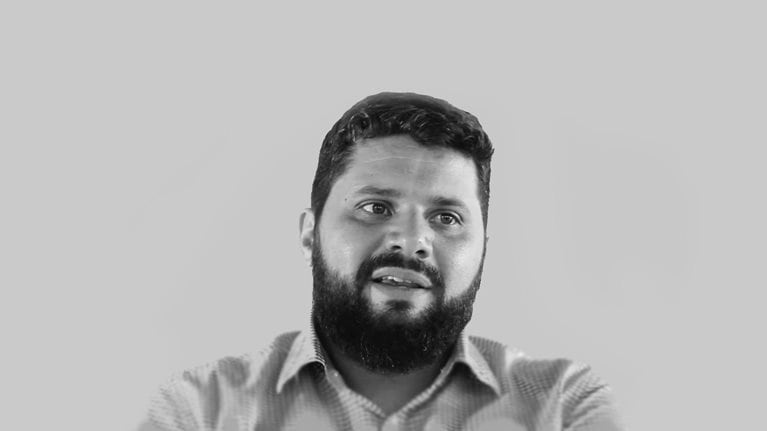When Aker BP realized it needed to liberate its data to transform its operating model, it took the time to develop a plan that could work. Øyvind Eriksen (pictured above), the president and CEO of Aker Group, Karl Johnny Hersvik, the CEO of Aker BP, and John Markus Lervik, the CEO of Cognite, discuss how important it was to understand the problem they wanted to solve before launching their data company, Cognite.
Investing the time to learn
Øyvind Eriksen: Strategically and operationally we saw a business opportunity from accessing and using data to drive large-scale improvements. In retrospect, the main thing we got right was that we spent six months up front in preparation for understanding how to capture this opportunity. Following this huge learning exercise we launched Cognite.
When we started, we knew we wanted to do something with our data, but we weren’t sure what or how. So we asked John Markus to join us. He knew a lot about software development but not much about oil and gas, and for us it was the other way around. He worked with our colleagues internally to learn our business and capabilities, and teach us about software.
John Markus Lervik: Investing time up front to understand where you are going is the only way to be able to move fast. Our effort started with an appreciation that we did not have access to data to do what we wanted to do. Through a series of discussions and a very detailed analysis of different tech and software providers, we came to a surprising conclusion: none of these software providers could deliver what we needed. Only by spending enough time to really understand the problem could we realize that we needed to do this ourselves.
Øyvind Eriksen: That realization was due to John Markus’ tech skills and expertise. Leaders like me wouldn’t have understood that the vendor products we assessed couldn’t really do what they said they could.
Karl Johnny Hersvik: In the digital era, it’s important to be able to adapt and adjust along the way. But without knowing where you’re going or the problem you’re solving or how to solve it, you can’t move quickly. We made sure that all the top executives had a shared understanding of where we were going. That was really important. I find that many companies just don’t understand the fundamental problem they’re trying to solve.
Getting the problem right
Karl Johnny Hersvik: We were speaking one evening in Paris after a long series of meetings with other companies, and came up with the criteria for the data platform we needed: It had to be able to access all data sources originating from the business; it needed to have extremely low latency; and it needed to provide open, transparent APIs to third-party providers. Formulating the problem in a simple way allowed John Markus to break down the criteria into software requirements. And that simplicity helped when we asked vendors questions around those three criteria. This was the first time the software developers we talked to were asked these questions, and they didn’t have the answers for all of them.
John Markus Lervik: Our secret sauce is that we spent time figuring out what the key success criteria were for developing Cognite—having a very demanding client (Aker BP), establishing a cross-functional collaboration with people in the industry and software experts, and then creating an environment to recruit the best people.

Fast Times: How digital winners set direction, learn, and adapt
How to get the best talent
John Markus Lervik: We started with an acknowledgment that it would be a struggle to attract talent in the software industry to a more traditional sector like ours. We couldn’t just insource this capability or engage an external supplier—that wouldn’t get us the caliber of talent we needed. This led us to set up Cognite as an independent company with all the benefits of a start-up. We also quickly recognized the importance of focusing on getting a few high-caliber people first because ambitious young people want to learn from the best.
Karl Johnny Hersvik: You get good people by demonstrating that you’re really changing the world and working on tough problems. Finding talent is a top management issue, so top management has to dedicate real-time recruiting. The first group of people you hire—maybe five or ten of them—have to be top talent, really the best people you can get.
Øyvind Eriksen: And we did have one significant advantage when it came to hiring: we could offer the combination of a start-up environment in Cognite with the stability and support of an established company (Aker BP) as a customer.
Inspiring our people
John Markus Lervik: Inspiring a large number of people to participate in our transformation was absolutely crucial. If people understand the initiative, and why we’re doing it, you can move mountains. If you talked about software solutions, you’d just inspire software developers. But we needed to inspire everyone.
Karl Johnny Hersvik: At first I focused on communicating outcomes, like the introduction of an app or a process change. By communicating the value of those outcomes, I found it much easier to communicate to a broader range of people. We created a slogan: liberate your data, redefine your world. We wanted to liberate data so users could use it to better understand processes and behaviors. What we were doing was pretty revolutionary in our industry, and it created enthusiasm among the people here.
Øyvind Eriksen: I found that the most efficient way to get commitment internally was by showing commitment externally. We stated publicly that we at Aker Group wanted to share data and collaborate in different ways from how the industry had done traditionally. Our employees saw this as an inspiring message.
Creating pull for the solution
Karl Johnny Hersvik: What’s been interesting to see is that our APIs that connect to the data platform are so easy to work with that people across the business have used them to create their own apps or applications. We sent out lots of developers from Cognite to work with operators out in the field to figure out how to use the data platform to solve their problems. They created their own solutions and allowed them to be part of the development, rather than having something imposed on them from above. And we found that this ended up creating a huge set of advocates who then trained their colleagues.
Working together in these small teams on the front line demonstrated that this behavior (working on their own applications tied to the data platform) wasn’t dangerous. It encouraged others to test out the system.
John Markus Lervik: Bringing together programmers, and oil-and-gas domain experts at different levels of the business let us at Cognite get a much deeper understanding of the needs at the operations level, and we could then develop a better sense of how our software could help solve a problem. This collaboration model created an opportunity for continuous improvement. The only way to create pull is to iterate solutions with people, and to solve real problems for them.
Karl Johnny Hersvik: It was very important to stick to our vision of liberating data along the way. This belief grounded us, and helped prepare us for the fact that we wouldn’t show financial gains in the beginning. But we did need to show other success quickly, such as inspiring large groups of people in the business, and letting people know how accessing data in new ways was helping solve real problems. And after more than a year, we’re now starting to see monetary gains.
Tough decisions
Øyvind Eriksen: The toughest decisions have really been turning down business so you can prioritize customers. In B2B, you have to go deep with a limited number of customers. And it’s not just a capacity issue; it’s a matter of finding customers who are set to succeed with us in terms of how flexible they are, their leadership, and culture.
In the B2B context especially, if you fail with a customer, it could set you back several years. So it’s really important to work with the right clients, learn with them, and make improvements to the product so that you build your reputation.


